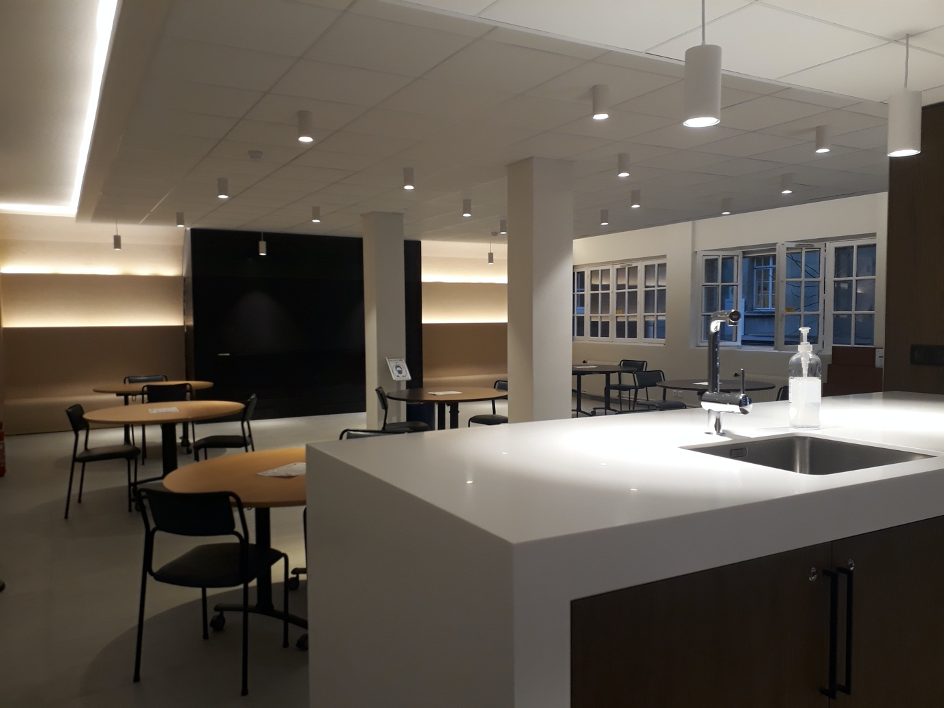The scientific programs at IHP
The Institut Henri Poincaré hosts and organizes various types of international scientific programs in the renovated framework of its historical building, the Borel building, until the renovation of the Perrin building planned for 2022.
Presentation of the programs
IHP develops three main types of programs: thematic programs, Research in Paris programs and doctoral training programs.
Thematic programs
Thematic programs are the flagship programs of the IHP since its re-foundation in 1994. They aim to bring together, on a given theme, internationally renowned scientists and researchers at the beginning of their careers or in training (PhD students, post-doctoral fellows) so that they can interact over time and advance together on their problems.
In addition to material and logistical support, these programs receive financial support from the IHP and its partners. The support of the IHP comes from the endowment and the means allocated for invitation by its supervisory institutions1 , as well as from the credits of the Carmin laboratory of excellence2 .
The partners involved on a permanent basis are :
- Cimpa, which supports the arrival of researchers from developing countries,
- Cirm, which hosts research schools at the beginning or end of the program,
- the IESC in Cargèse, which also hosts research schools at the beginning of the program,
- the Fondation Sciences Mathématiques de Paris (FSMP-IHP program),
- the IHÉS for post-doctoral students,
- the University of Paris-Saclay (funding of stays).
Researchers selected by the scientific organization committee of a thematic program are invited to stay in Paris and to participate as long as possible (academics working in France are encouraged to apply in due time for a delegation to the CNRS covering the duration of the program).
Standard thematic programs last three months and are traditionally organized between January and April, April and July, September and December.
Shorter programs of six weeks have been introduced to allow emerging communities to also benefit from the services offered by IHP. The short programs are normally held between January and April.
Research in Paris Program
The Research in Paris Program is designed to host scientists in small groups as is the practice in most similar institutes. The selected groups receive material, logistical and financial support to advance or finalize a research project at the IHP. Financial support for this program is part of the Carmin laboratory of excellence.
Doctoral training program
By virtue of its missions, the IHP participates in doctoral training. Within the framework of this program, it provides financial support for the organization of doctoral courses, preferably at the IHP or at its partners. Financial support for this program is part of the Carmin laboratory of excellence.
Coordination and organization of programs
The coordination and organization of the programs selected by the Scientific Programming Committee of the IHP are entrusted to the Centre Émile Borel (CEB), a department whose main mission is to coordinate and organize the programs. The CEB team works closely with the support departments (reception, finance, multimedia).
The two other departments of the IHP, the library and the Maison Poincaré, are also involved in the scientific programs.
The library (which occupies the entire first floor of the Borel building) provides the necessary documentary resources and work spaces complementary to the individual offices for the participants.
The Maison Poincaré (which will eventually be installed in the Perrin building) coordinates the dissemination activities around the scientific programs (interviews, conferences for schools and/or the general public, etc.).
Scientific field of action
The IHP strives to cover all disciplinary fields in which mathematics, theoretical physics and computer science (from the most fundamental aspects to applications) play an important role. It also strives to develop interactions between mathematics and other disciplines, in particular biology.
Applications to the programs are evaluated against the missions of the IHP by the Scientific Programming Committee (SPC) of the IHP twice a year, in June and in November.
The CPS is particularly sensitive to themes that have not recently been the subject of activities within the institute (for example: statistics, scientific computing, high-energy physics, without this list being restrictive).
Scientific field of action
The IHP strives to cover all disciplinary fields in which mathematics, theoretical physics and computer science (from the most fundamental aspects to applications) play an important role. It also strives to develop interactions between mathematics and other disciplines, in particular biology.
Applications to the programs are evaluated against the missions of the IHP by the Scientific Programming Committee (CPS) of the IHP twice a year, in June and in November.
The CPS is particularly sensitive to themes that have not recently been the subject of activities within the institute (for example: statistics, scientific computing, high-energy physics, without this list being restrictive).
In addition, IHP is committed to advancing gender and diversity issues. Therefore, the SPC pays particular attention to the balanced representation of women and men, as well as different nationalities, among the speakers and within the scientific committees.
Indicative calendar
The calls for applications are relayed each year via the IHP newsletter to which one can subscribe online. The generic calendar is as follows.
Call for applications for year n :
- Quarterly thematic programs for year n+3
- Six-week thematic programs for year n+2
- Small group hosting program "Research in Paris" for year n+1
- Doctoral course support program for year n+1.
Deadline each year: May 15.
Application forms are available online.

